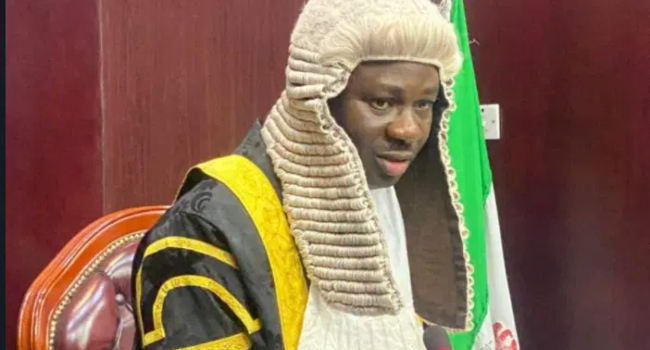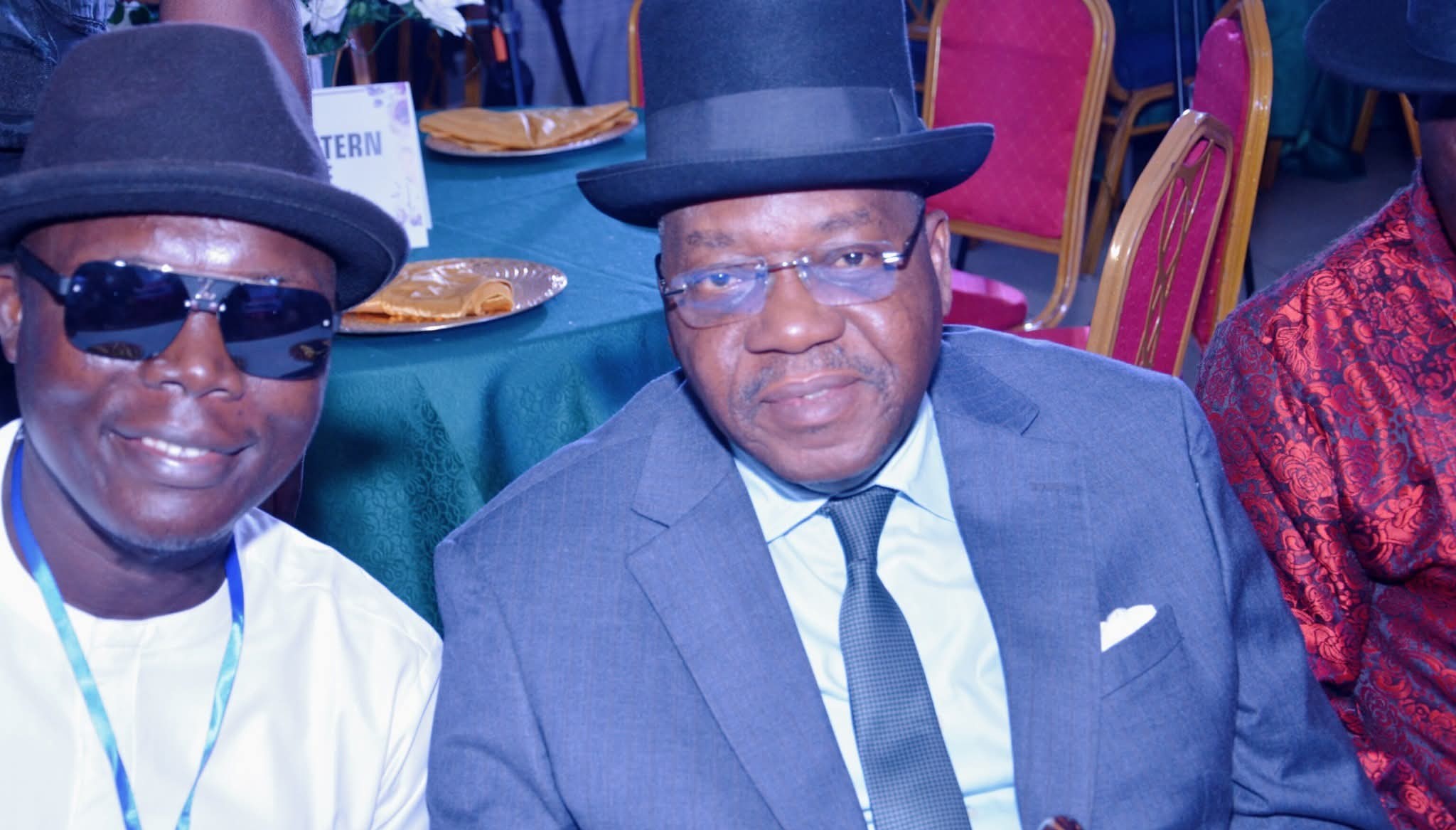News
Explosive Facts About Oppenheimer, ‘Father Of Nuclear Bombs’

Julius Robert Oppenheimer, a foremost scientist in the Manhattan Project, which eventually brought an end to the second World War, has been celebrated as the father of the “nuclear bombs.”
A brilliant scientist, Oppenheimer’s work remains a reference point as the first atomic bomb was detonate in New Mexico during the famous Trinity test of 1945.
Christopher Nolan, the director of Oppenheimer’s much-anticipated biopic, named him “the most important person who ever lived.”
In an interview with New York Times, Nolan noted that if the fears of a nuclear war come to pass, “Oppenheimer will be the man who destroyed the world. Who’s more important than that?”
Starring, Cillian Murphy, “Oppenheimer” hit the theatres on Friday, 21st of July. The Universal film is based on the Pulitzer-winning book, “American Prometheus”, written by Kai Bird and Martin J. Sherwin.
Here are some explosive and notable facts about Oppenheimer, a legendary scientist and the ‘father of atomic bombs.’
READ ALSO: Police Free Ibadan Skit-maker, Trinity Guy On Bail
Oppenheimer was born on the 22nd of April, 1904, to German Jewish immigrant parents. His mother, Ella Friedman, was a painter, and his father, Julius S. Oppenheimer was a wealthy German textile merchant, who migrated to the United States in 1888.
He graduated summa cum laude from Harvard University in 1925 with a bachelor’s degree in Chemistry. He obtained a Ph.D. in physics from the University of Göttingen, Germany in 1927. He also lectured at the University of California, Berkley, and became a full professor at the age of 32.
Oppenheimer is noted for his contribution to the theory of neutron stars, quantum fields, black holes, and the interactions of cosmic rays.
He is also known for his remarkable work with Born Oppenheimer approximation in molecular dynamics, the Oppenheimer–Phillips process in nuclear fusion, and the first prediction of quantum tunneling. His 1966 article, titled, “On Albert Einstein”, revealed his close friendship with Einstein, one of the greatest scientists of all time.
READ ALSO: Ibori Kicks As UK Court Orders Confiscation Of $130m From Him
The project arose from fears of Germany building a nuclear bomb before the Western Allies could do the same. Three years after the German Nuclear Weapons Program was established, the United States Commenced the Manhattan Project and Oppenheimer was made head of the research and development team in 1942.
Oppenheimer was able to work with both scientists and the military to create the first nuclear bomb. He code-named the first atomic bomb test “Trinity”, which was conducted in the Jornada del Muerto desert in New Mexico.
American biologist Katherine “Kitty” Oppenheimer, married Oppenheimer in November 1940, shortly after divorcing her third husband.
Their first son, Peter, was born in May 1941, and their second child, Katherine, was born in December 7, 1944. During his marriage, Oppenheimer was involved in an affair with Jean Tatlock, an American psychiatrist whom he dated before his marriage to Kitty.
The legendary scientist was a surprising pick for the Manhattan Project because of his German heritage as well as communist leanings. He had several communist affiliations including his wife, and mistress, Tatlock. He was therefore kept under close surveillance by the Federal Bureau of Investigation for most of his career.
Oppenheimer, shortly after the bombing of two Japanese cities, Hiroshima and Nagasaki, wrote a letter to the U.S. Secretary of War, Henry Stimson in which he expressed, in strong terms, his opposition to the action. He proposed to Stimson that further research on nuclear weapons should be banned. In 1949, he also strongly opposed the creation of hydrogens bombs which were more powerful than their atomic predecessors.
READ ALSO: Tinubu’s Ministerial List: More Trouble Awaits APC – Nigerian Prophet
Due to his Communist affiliation, and suspected loyalty to the Soviet Union, the Oppenheimer security hearing was held in 1953. He was afterwards stripped of his security clearance which gave him access to top secret restricted data in the U.S. This decision was recently revoked in December 2022, by the United States Secretary of Energy, Jennifer Granholm, who stated that the judgement was the result of a “flawed process”.
Oppenheimer had a smoking habit and was diagnosed with throat cancer in late 1965. Despite undergoing an array of treatments including surgery, radiation, and chemotherapy in 1966, he fell into a coma on February 15, 1967, and died three days later at the age of 62.
Christopher Nolan’s reputation for blockbusters such as “Interstellar”, makes “Oppenheimer” a highly anticipated film. Nolan is known for his aversion to Computer-Generated imagery and has assured viewers an unparalleled cinematic experience through his use of cutting-edge technology for analogue effects.
Asides Murphy, other Hollywood stars in the movie include Emily Blunt, Robert Downey Jr., Florence Pugh, and Matt Damon.
The movie comes in the wake of Russian aggression in Ukraine, which has seen the resuscitation of nuclear threats.
VANGUARD
News
Coordinator, Edo First Lady Office, Majority Leader, Rights Lawyer, Others Bag 2025 Leadership Award

The Coordinator, Office of the First Lady, Edo State, Mrs. Edesili Okpebholo Anani; Majority Leader, Edo State House of Assembly, Hon. Jonathan Aigbokhan, and human rights lawyer, President Aigbokhan, alongside 27 others were on Friday , December 19, 2025, honoured with the 2025 Leadership & Development Award.
In his welcome address at the event with the theme: ‘Empowering Tomorrow’s Leaders: Innovating for a Sustainable Future,’ Team Lead, Leadership and Development Initiatives, Dr. Sunny Duke Okosun, said the initiative was to recognise and celebrate the outstanding contributions of individuals and organizations that are shaping the future of “our world.”
Okosun, who said the awardees were not just selected for award sake, noted that “our awardees have demonstrated exceptional leadership, innovation, and commitment to making a positive impact in their respective fields. Their stories will inspire us, their achievements will motivate us, and their dedication will challenge us to strive for greatness.”
The Team Lead, while expressing his organisation’s
commitment to identifying, recognizing, and empowering leaders who are making a difference, said “we also look to the future, recognizing that the leaders of tomorrow will be those who innovate, collaborate, and prioritize sustainability.”
READ ALSO:Vanguard Correspondent Bags Edo Icon Award 2025
Okosun, who congratulated the awardees on “your outstanding achievements,” stressed: “Let us continue to inspire, motivate, and challenge each other to be the leaders we need for a brighter tomorrow.”
In her keynote address, Anani described the theme of the event as timely and profound, stressing that “it speaks directly to the urgent need to prepare our present and future generations with the skills, values, and mindset required to navigate an increasingly complex world.”
The Coordinator, who noted that “a sustainable future demands leaders who are conscious of the environment, committed to social inclusion, and driven by economic responsibility,” challenged: “Leadership in our time must go beyond titles and positions; it must be anchored on service, innovation, integrity, and a clear vision for sustainable development. Leadership empowerment begins with education, mentorship, and opportunity.”
She added: “When we invest in our young people by equipping them with knowledge, encouraging creativity, and providing platforms for growth we are laying the foundation for enduring progress. Innovation, in this context, is not limited to technology alone; it also includes innovative thinking in governance, entrepreneurship, social development, and community engagement.
READ ALSO:Ballon d’Or: Why Neymar Didn’t Win Award – Gerard
“A sustainable future demands leaders who are conscious of the environment, committed to social inclusion, and driven by economic responsibility. It calls for leaders who can balance progress with preservation, growth with equity, and ambition with compassion. As a society, we must therefore foster innovation that addresses real challenges, creates jobs, strengthens communities, and improves the quality of life for all.”
Guest Speaker at the event, Prof. Festus Olise, described leadership as a curse to Nigeria, adding: “Year in, year out, we elect leaders into leadership positions yet our problems persist.”
Majority Leader of the Edo State House of Assembly who happened to be one of the recipients, thanked the organisers, stressing that it is a challenge for him to do more for his people.
“I have done much for my constituents since I was elected, but the award will spure me to do more. Leadership is about catering for the followers, and this is a role I have been playing to the best of my ability.”
News
Delta Speaker Advocates Strict Legislative Protection Of N’Delta Environment

The Speaker of the Delta state House of Assembly Hon. Emomotimi Guwor has advocated for more stringent legislations to protect the Niger Delta environment against violators, especially multinational and local oil companies.
He lamented that these multinational and local oil companies have turned the Niger Delta environment to dumping sites with the pollution of oil exploration and exploitation.
Guwor spoke at the 2nd annual Ijaw media conference 2025, organized by the Ijaw Publishers’ Forum, IPF in Delta State.
According to him, this will curb further damages of the Niger Delta environment, thereby saving the environment for future generations.
READ ALSO:Delta: Suspected Kidnapper Killed In Gun Battle With Police
The Delta state speaker, who was represented by a former Commissioner for Oil and Gas, Chief Emma Amgbaduba, noted that environmental neglect and social injustice were key drivers of unrest in oil-producing areas.
According to him, ”fishermen and farmers are in acute hunger and hardship due to the polluted rivers and degraded farmlands have pushed many families into hardship, threatening livelihoods that once sustained entire communities”
He warned that unless urgent steps are taken to protect natural resources, the human cost of oil exploration would continue to deepen poverty and insecurity in the region, with consequences for the national economy.
READ ALSO:Panic In Delta Female School Over False Herdsmen Attack
Guwor emphasized that host communities must demand strict compliance by international and indigenous oil companies with global environmental standards and the Petroleum Industry Act (PIA).
He noted that environmental neglect and social injustice were key drivers of unrest in oil-producing areas.
Guwor urged residents to take ownership of environmental protection in their communities, while acknowledging ongoing efforts to curb crude oil theft, which he said has worsened pollution and economic losses.
The Speaker stressed that peaceful coexistence within communities remained critical to restoring confidence, attracting investments and improving living conditions in the Niger Delta.
News
IPF’s Conference: Igali Seeks Approval Of License For Locals To Operate Modular Refinery

The National Chairman of Pan Niger Delta Forum,( PANDEF) Amb. Godknows Boladei lgali, has appealed to President Bola Ahmed Tinubu to approve license for Niger Delta sons and daughters who have the requirements to operate modular refineries as it is done in the US and the Western world.
Dr. Igali who was the keynote speaker at the 2025 Ijaw Media Conference made the call on Wednesday December 17, in Warri.
He stated that the operation of modular refineries was for the best interest of increasing the growth of the nation’s economy as well as to create a sense of belonging to the people that own the crude oil and gas.
He said that it is important for the people to properly manage their God-given resources towards the welfare of humanity rather than being destroyed in the name of illegal oil bunkering.
READ ALSO:IPF Holds Annual Ijaw Media Conference December
by government security agencies thereby resulting in pollution and degradation of the environment they lived in.
He asserted that most of the raw materials used by industries are deposited in the Niger Delta region, especially crude oil, Gas, palm oil, rubber, cotton etc, stressing that the region will continue to be relevant in Nigeria because of her natural wealth.
He affirmed that Niger Deltans should think of sustaining its natural resources as well as safeguarding its environment for today and the future generations.
READ ALSO:IPF Throws Weight Behind Otuaro-led PAP, Urges Critics To Be Constructive
He urged the people to be more focused on education and professional skill acquisition, stressing that with the right education and skills, the scholars can invent new things that will better the society.
Igali also commended the Presidential Amnesty Programme Coordinator, Dr. Dennis Otuaro for his good works, while urging him not to be distracted by critics rather, he should continue sending “our sons and daughters abroad to acquire more skills and come back home to develop the Niger Delta region.”
He also urged Niger Deltans to sustain the existing peace, stressing that without peace development cannot strive in the communities.

 Metro5 days ago
Metro5 days agoSuspected Kidnappers Abduct 18 Passengers On Benin-Akure Road

 News5 days ago
News5 days agoI’m Not Distracted By Anti-Niger Delta Elements, Says PAP Boss, Otuaro

 News5 days ago
News5 days agoOPINION: Time For The Abachas To Rejoice

 News4 days ago
News4 days agoWage Dispute: Court Orders PSG To Pay Mbappe €61 Million

 Sports4 days ago
Sports4 days agoJUST IN: Dembélé Named FIFA Best Men’s Player, Bonmatí Wins Women’s Award

 News5 days ago
News5 days agoEdo Assembly Charges Contractor Handling Ekekhuan Road To Accelerate Work

 Headline3 days ago
Headline3 days agoAircraft Crashes In Owerri With Four Persons Onboard

 Metro5 days ago
Metro5 days agoNDLEA Seizes 457kg of Cannabis, Arrests Suspected Trafficker In Edo

 Business4 days ago
Business4 days ago9th FirstBank Digital Xperience Centre Launched In UNIBEN

 News5 days ago
News5 days agoEx-Nigerian Amb., Igali, To Deliver Keynote Address As IPF Holds Ijaw Media Conference




















